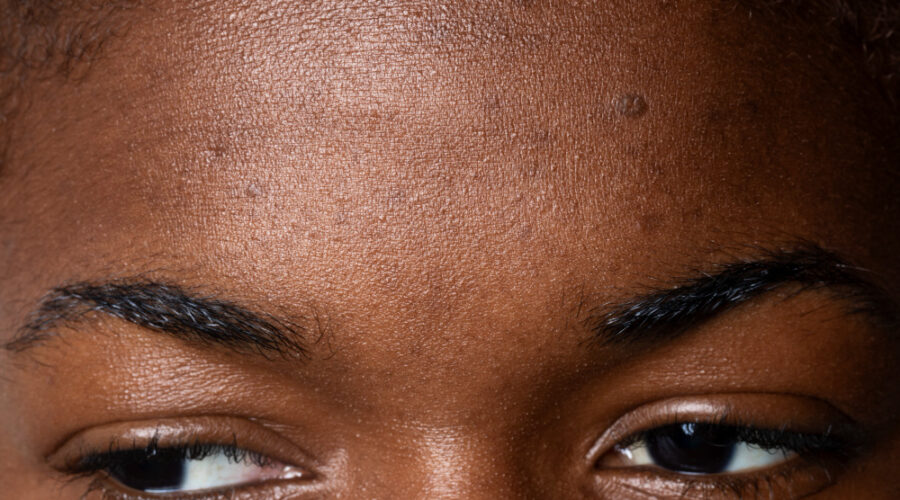Reducing Unwanted Wrinkles: A Research-Based Guide
As we age, wrinkles become more common, resulting from natural processes within the skin and the body’s responses to environmental factors. While it’s natural to experience changes in skin texture and elasticity over time, research has shown that specific practices can reduce the formation of unwanted wrinkles, keeping skin healthier and more resilient. This article delves into scientifically backed strategies for minimizing wrinkles, from lifestyle adjustments to effective skincare practices.
1. The Role of Sleep in Skin Health
Research underscores the importance of quality sleep for skin maintenance. During deep sleep, skin undergoes a critical repair and renewal process, producing new collagen and enhancing elasticity. A lack of sufficient sleep has been associated with premature skin aging and fine lines, as it impedes these natural repair cycles. Studies also indicate that sleeping on your back can help reduce skin creasing caused by prolonged pressure on facial tissue.
Tip: Aim for 7–8 hours of quality sleep and consider using a silk pillowcase to further minimize friction.
2. Hydration’s Impact on Skin Elasticity
Adequate hydration plays a fundamental role in skin resilience. Studies indicate that hydrated skin is more elastic and less prone to fine lines and wrinkles. Water helps maintain the skin’s natural moisture barrier, making it appear plumper and smoother. Drinking at least eight glasses of water daily can significantly benefit skin texture over time.
Tip: Incorporate hydrating foods like cucumber, watermelon, and oranges into your diet for an extra hydration boost.
3. Exercise and Skin Circulation
Exercise improves blood circulation and increases oxygen supply to the skin, nourishing cells and promoting cell turnover. Physical activity has been linked to enhanced skin tone and elasticity. A study published in Aging Cell found that regular exercise can counteract visible aging in the skin and support a radiant complexion.
Tip: A minimum of 30 minutes of aerobic exercise, such as brisk walking or cycling, can support skin health by encouraging circulation.
4. Sun Exposure and Photodamage Prevention
Sun exposure remains a leading cause of premature wrinkles, as UV radiation breaks down collagen fibers, weakening skin elasticity. Research has shown that daily application of a broad-spectrum sunscreen with an SPF of 30 or higher can protect skin cells from UV damage and slow visible aging. According to a study in Dermatology Research and Practice, people who consistently used sunscreen exhibited significantly fewer wrinkles and improved skin quality.
Tip: Apply sunscreen daily, even during cloudy weather or colder seasons, as UV rays can penetrate clouds and cause damage.
5. Diet’s Influence on Skin Aging
The impact of nutrition on skin health is well documented. Antioxidant-rich foods (berries, leafy greens, nuts) help combat free radicals, which damage skin cells and accelerate aging. Omega-3 fatty acids, found in foods like salmon and flaxseed, support skin elasticity and hydration by reinforcing the skin barrier. Research published in The American Journal of Clinical Nutrition found that diets rich in antioxidants and omega-3s are associated with a reduced risk of premature wrinkles.
Tip: Regularly consume fruits, vegetables, and healthy fats to nourish your skin from within.
6. Simplifying Skincare: The Power of Minimalism
The trend toward minimalist skincare has garnered attention for a reason: less is often more. Overuse of products can irritate the skin barrier, leading to redness, dryness, and accelerated aging. A 2018 study on skincare found that a simple routine with a cleanser, moisturizer, and sunscreen is effective for most skin types, minimizing the risk of irritation and inflammation.
Tip: Focus on a simple, consistent skincare routine to maintain healthy skin without overloading it with unnecessary products.
7. Stress Reduction’s Role in Aging
Stress can accelerate skin aging due to cortisol release, which breaks down collagen and leads to sagging skin and wrinkles. Psychological studies show that stress management techniques, such as mindfulness and yoga, can lower cortisol levels and improve skin health over time. A study in Psychosomatic Medicine found a correlation between lower stress levels and improved skin elasticity and hydration.
Tip: Incorporate stress-reducing activities like meditation or gentle exercise into your daily routine.
8. Regular Facial Massage and Its Benefits
Facial massage has been shown to stimulate blood flow and lymphatic drainage, reducing puffiness and improving skin texture. A study in Plastic and Reconstructive Surgery found that facial massages, when done consistently, can increase blood circulation and support collagen production, leading to fewer fine lines and enhanced skin firmness.
Tip: Use a gentle facial oil and perform a five-minute facial massage with upward strokes for best results.
Conclusion: An Integrated Approach to Wrinkle Reduction
By adopting these research-supported habits, you can improve skin resilience and minimize unwanted wrinkles. While lifestyle changes, hydration, nutrition, and sun protection play foundational roles, simple, science-backed skincare routines and stress management practices are essential for maintaining youthful skin.
To access professional resources and learn more about maintaining healthy skin, download the Medsearch Zambia App—your all-in-one resource for health and wellness guidance, right at your fingertips

